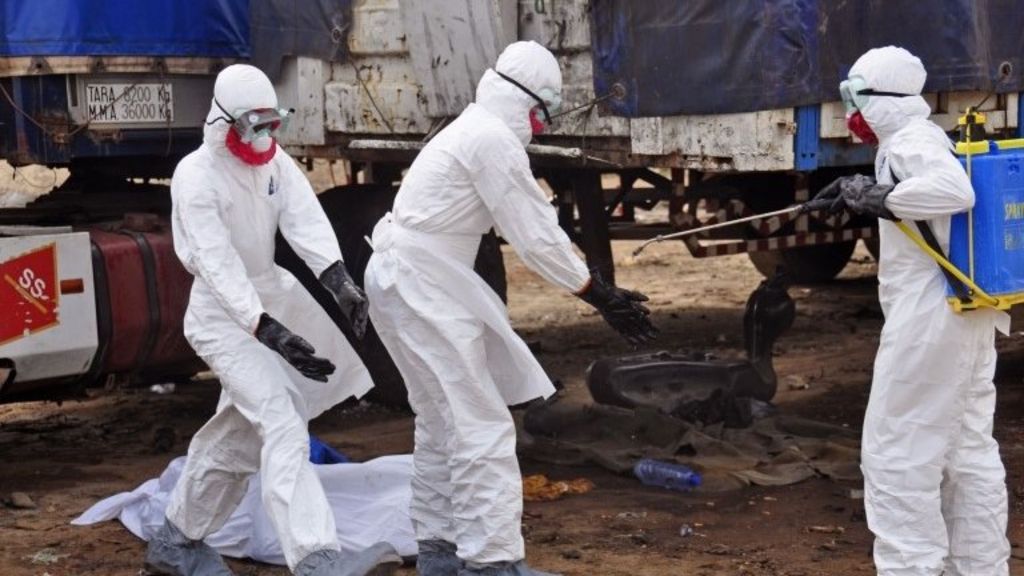
Canada says it will donate up to 1,000 doses of an experimental Ebola vaccine to help battle the disease’s outbreak in West Africa.
It comes after the World Health Organization said it was ethical to use untested drugs on Ebola patients.
However, experts say supplies of both the vaccine and the experimental drug Zmapp are limited and it could take months to develop more supplies.
More than 1,000 people have been killed by the current outbreak.
Canada says between 800 and 1,000 doses of the vaccine, which has only been tested on animals, will be donated to the World Health Organization (WHO) for use in West Africa.
However, it will keep a small portion of the vaccine for research, and in case it is needed in Canada.
‘Global resource’
The current outbreak has infected people in Guinea, Sierra Leone, Liberia and Nigeria.
Dr Gregory Taylor, deputy head of Canada’s Public Health Agency, said he saw the vaccines as a “global resource”.
He said he had been advised that it would make sense for health care workers to be given the vaccine, given their increased risk of contracting the disease.
Even if Canada releases most of its existing doses, experts warn it could take four to six months to make a quantity large enough to have any real impact at preventing the illness, the BBC’s Lee Carter reports from Toronto.
On Tuesday, the WHO said that in light of scale of the outbreak and high number of deaths, it was “ethical to offer unproven interventions with as yet unknown efficacy and adverse effects, as potential treatment or prevention.”
Last week the WHO declared the Ebola outbreak was a global health emergency.
‘Drug supply exhausted’
Liberia says it is getting an experimental drug, Zmapp, after requests to the US government.
However, the WHO said there were only 12 doses.
Zmapp maker Mapp Biopharmaceutical said on Tuesday: “The available supply of ZMapp has been exhausted. We have complied with every request for ZMapp that had the necessary legal/regulatory authorisation.
“Drug has been provided at no cost in all cases.”
Zmapp has been used on two US aid workers who have shown signs of improvement, although it is not certain what role the medication played in this.
A Roman Catholic priest, infected with Ebola in Liberia, who died after returning home to Spain is also thought to have been given the drug.
Ebola’s initial flu-like symptoms can lead to external haemorrhaging from areas such as eyes and gums, and internal bleeding which can lead to organ failure. Patients have a better chance of survival if they receive early treatment.
What drugs exist currently ?
There are a handful of drugs that have been shown to work well in animals.
One is Zmapp – the drug requested by the Liberian government. This contains a cocktail of antibodies that attack proteins on the surface of the virus.
Only one drug has moved on to early safety testing in humans. Known as TKM-Ebola, this interrupts the genetic code of the virus and prevents it from making disease-causing proteins.
The drug was trialled in healthy volunteers at the beginning of 2014 but the American medicines regulator asked for further safety information. The manufacturer says human studies may soon resume.
Another option would be to use serum from individuals who have survived the virus – this is a part of the blood that may contain particles able to neutralise the virus.
Vaccines to protect against acquiring the disease have also been shown to work in primates. American authorities are considering fast-tracking their development and say they could be in use in 2016. Trials are likely to start soon, according to the WHO.
But experts warn that ultimately the only way to be sure a drug or vaccine is effective is to see if it works in countries affected by Ebola.
Ebola virus disease (EVD)
- Symptoms include high fever, bleeding and central nervous system damage
- Fatality rate can reach 90% – but the current outbreak is about 55%
- Incubation period is two to 21 days
- There is no vaccine or cure
- Supportive care such as rehydrating patients who have diarrhoea and vomiting can help recovery
- Fruit bats are considered to be virus’ natural host